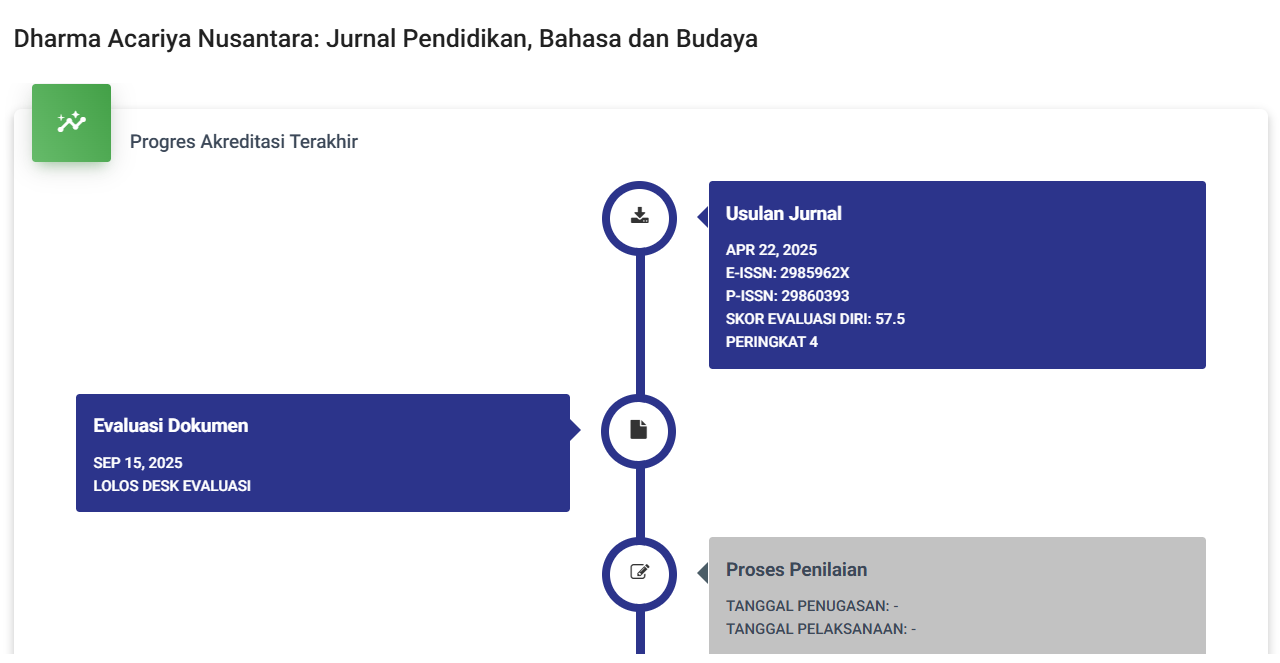Efektivitas Penerapan Metode Reward dan Punishment dalam Upaya Mengembangkan Kecerdasan Emosional Anak Usia 5-6 Tahun di TK Nurul Hidayah Gunung Maddah Sampangtahun 2023
DOI:
https://doi.org/10.47861/jdan.v2i2.1251Keywords:
Reward Method, Punishment, AUDAbstract
Children are the next generation of the nation and a source of people for national development, so they must be cared for and nurtured as early as possible so that they become high-quality and useful people for the nation. Therefore, the alternative given is the reward and punishment method. This research is qualitative research, namely research aimed at describing and analyzing phenomena, events, social activities, attitudes, beliefs, perceptions, thoughts of individual people and groups of data related to this research using field studies. The aim of this research is to determine the effectiveness of applying the reward and punishment method in an effort to develop the emotional intelligence of children aged 5-6 years at Nurul Hidayah Kindergarten, Gunung Maddah, Sampang. Meanwhile, it is hoped that the use of this research will be beneficial for all groups. Obtaining valid data requires adequate informants and must use several techniques. There are three data collection techniques used in research, observation, interview and documentation methods. The application of rewards at Nurul Hidayah Kindergarten in group B was observed and researched by researchers by applying rewards by giving star marks. Where for children who do activities every day, listen to instructions from the teacher and carry out a habitual activity, the child will get a reward in the form of a star or by giving praise, a thumbs up, occasionally they are also given a prize in the form of a row in front of the first number, sitting on a bench. front, etc. Meanwhile, punishment is a punishment such as singing in front of them or something like that, so that they are deterred and don't make the same mistake..
References
Abdul Halim, M. N. (2000). Menghias diri dengan akhlaq terpuji. Mitra Pustaka.
Anwar, C. (2017). Teori-teori pendidikan klasik hingga kontemporer: Formula dan penerapannya dalam pembelajaran. IRCISOD.
Arifin, Z. (2014). Penelitian pendidikan. PT. Remaja Rosdakarya.
Bin Said Az-Zahrani, Dr. (2005). Musafir konseling terapi. Gema Insani.
Departemen Agama. (1971). Al Qur’an dan terjemahnya. Yayasan Penyelenggara Penafsir Al Qur’an.
Dimyati, M., & Mudjiono. (2009). Belajar dan pembelajaran. Rineka Cipta.
Hadikusumo, H. (1995). Metode pembuatan kertas kerja atau skripsi ilmu hukum. Mandar Maju.
Huda, M. (2013). Model-model pengajaran dan pembelajaran. Pustaka Pelajar.
Kulsum, U. (2011). Metode khusus pendidikan agama Islam. Pustaka Nusantara.
Maria Ningsih, N. (2018). Bukan kelas biasa. Percetakan CV Oase Grub.
Marno, & Idris, M. (2014). Strategi, metode, dan teknik mengajar. Ar-Rus Media.
Moleong, L. J. (2006). Metodologi penelitian kualitatif. Remaja Rosda Karya.
Pakdosen. (2020). Penelitian kualitatif: Pengertian, ciri, jenis, dan metode menurut para ahli. Diakses dari http://pakdosen.co.id/penelitian-kualitatif-menurut-para-ahli/
Putro, B. S. (1997). Proses belajar mengajar di sekolah. PT Rineka Cipta.
Sukmadinata, N. S. (2016). Metode penelitian pendidikan. PT. Remaja Rosda Karya.
Salmeto. (2010). Belajar dan faktor-faktor yang mempengaruhinya. Rineka Cipta.
Solichin, M. (2012). Psikologi belajar. Suka Press UIN Sunan Kalijaga.
Subroto, B. S. (1997). Proses belajar mengajar di sekolah. PT Rineka Cipta.
Sugiyono. (2008). Metode penelitian kuantitatif, kualitatif, dan R&D (Cet. ke-8). Alfabeta.
Suharsimi, A. (2010). Prosedur penelitian: Suatu pendekatan praktik. Rineka Cipta.
Surabrata, S. (1983). Metode penelitian. Rajawali.
Suryadi, A. (2014). Pendidikan Indonesia menuju 2025. PT Rosda Karya.
Susanto, A. (2013). Teori belajar dan pembelajaran di sekolah dasar. Kencana Prenada Media Group.
Suwito. (2004). Filsafat pendidikan: Ilmu akhlaq Ibnu Miskawaih (Cet. ke-1). Belukar.













